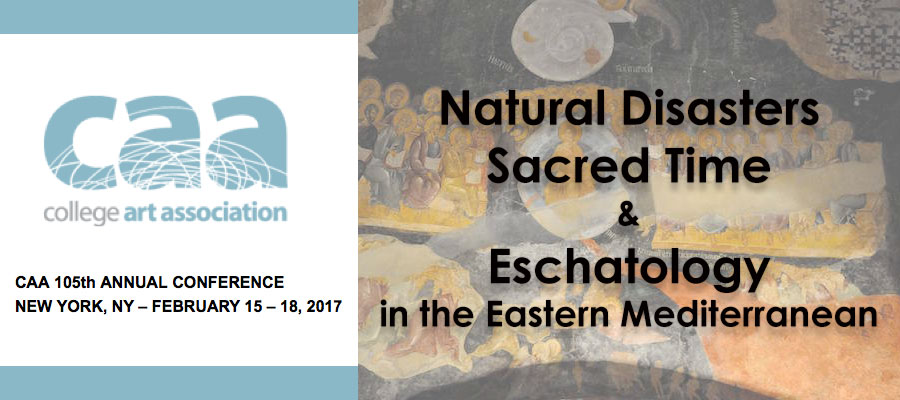Natural Disasters, Sacred Time, and Eschatology in the Eastern Mediterranean, College Art Association 105th Annual Conference session, New York, February 15–18, 2017
The impact of the environment and the natural world on the human condition has incited a growing scholarly interest in recent years. This panel examines representations of natural disasters (fire, earthquakes, plagues, etc.) marking sacred time and asks how catastrophic events in the natural world structured the historical perception of sacred time. In many cultures, the eschaton or the end of time was a crucial moment in sacred time, intimately linked to destructive forces in the natural world. In Judaism, theophanies were often accompanied by frightening natural phenomena. In Middle Byzantine times, Last Judgment scenes began to incorporate a river of fire that leads to hell and opens up into a fiery abyss; while in Islam, the Day of Judgment would be announced by a massive upheaval of the natural order of the world, from cataclysmic earthquakes to the parting of the heavens.
The panel queries how the relationship between natural disaster and any moment in sacred time was visualized and materialized in artifacts, architecture, and the design of specific sites. Some of the questions may include how natural disasters triggered expectations of divine agency or the advent of the eschaton. How were these events imagined, represented, or even counteracted? Which natural sites were associated with events in sacred time, and how were they architecturally and ritually framed or represented visually across various media?
Session organizers
Armin Bergmeier (Leipzig University)
Heba Mostafa (University of Kansas)
